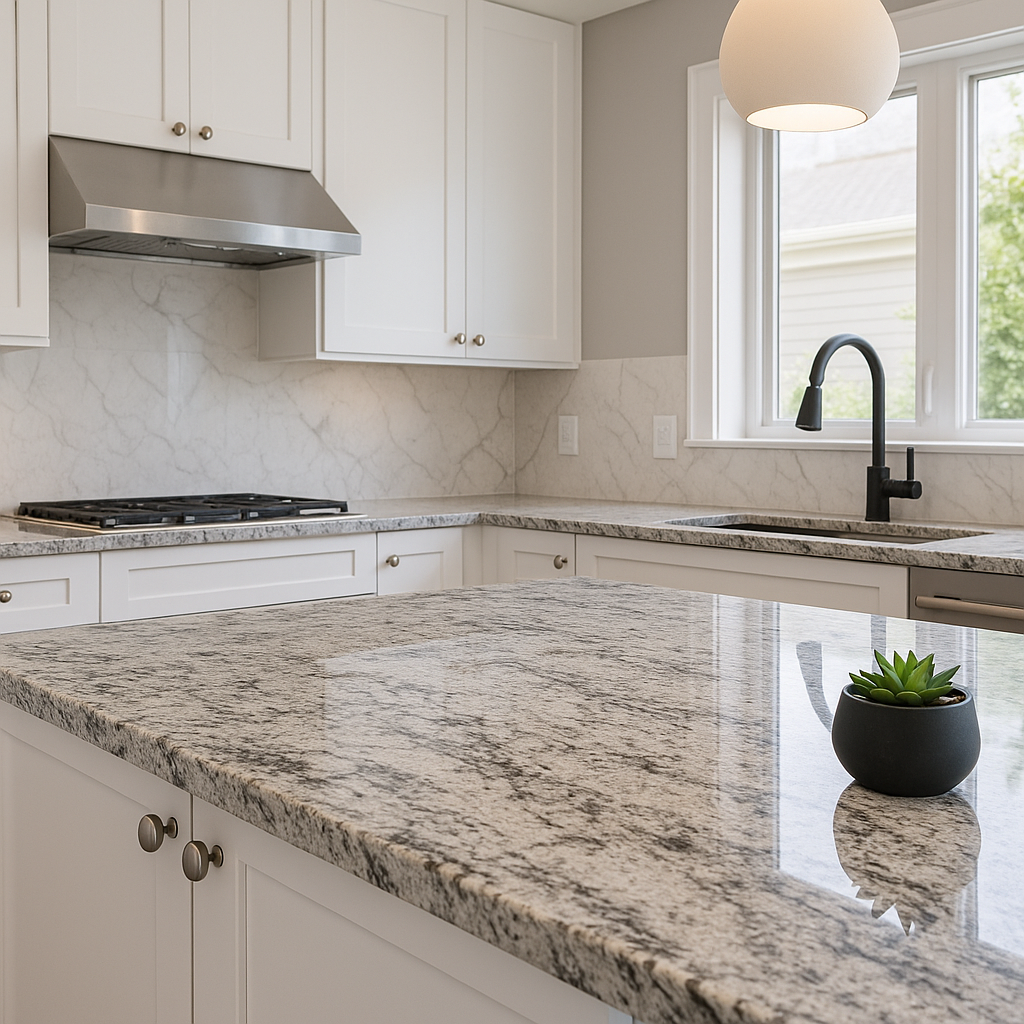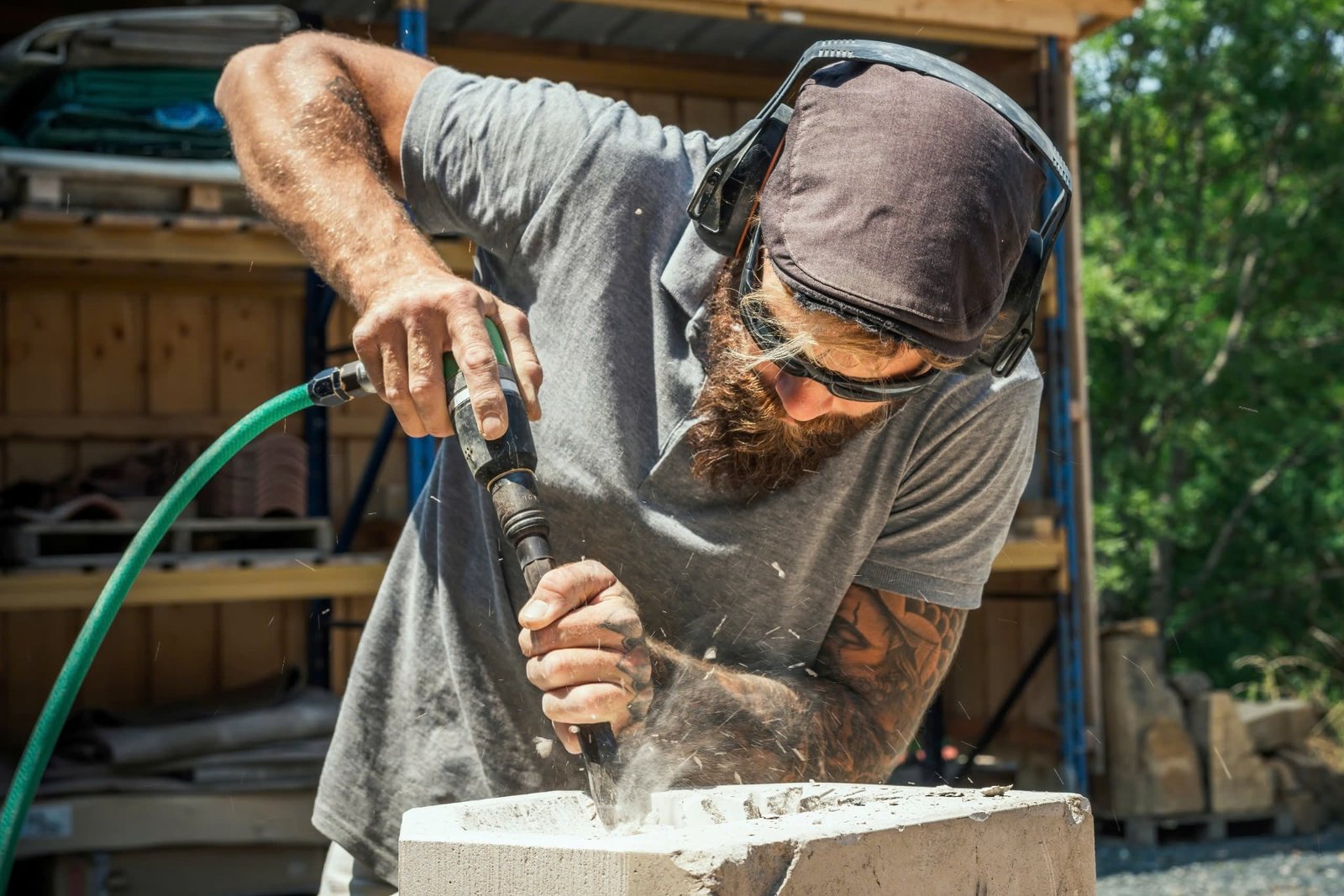
While materials like granite and quartz continue to dominate, how we approach countertop installation is rapidly evolving thanks to new design trends
In modern home design, the kitchen has evolved from a utilitarian space into the centerpiece of the home—where form meets function. At the heart of this transformation lies the countertop. While materials like granite and quartz continue to dominate, how we approach countertop installation is rapidly evolving thanks to new design trends, smart technologies, and sustainability considerations.
Whether you’re planning a new kitchen countertop installation, a countertop replacement, or are curious about updating your space, staying informed about current trends ensures that your kitchen remains stylish, practical, and future-ready.

What Makes Countertop Trends Worth Following?
Trends are more than just aesthetics—they often reflect improvements in:
- Functionality and material performance
- Ease of maintenance
- Environmental sustainability
- Technological integration
- Property resale value
By keeping up with the latest in countertop installation, you make smarter design choices that maximize longevity and appeal.
1. Popular Materials Evolve Over Time
Granite and quartz have long been industry favorites. But newer styles and surface technologies are reshaping what homeowners want.
Trending materials:
- Quartz countertop installation: Dominating for its durability, non-porous properties, and low maintenance.
- Granite countertop installation: Still in demand for its natural patterns and timeless appeal.
- Recycled surfaces: Made from glass, porcelain, or concrete—ideal for sustainable homes.
- Ultra-compact surfaces (like Dekton): Heat-, scratch-, and UV-resistant for indoor/outdoor use.
These material shifts also influence installation techniques, edge profiling, and kitchen countertop fitting approaches.
2. Smart Technology Integration
One of the most significant modern trends is the shift toward smart countertops. Features such as wireless charging, embedded lighting, and voice-controlled appliances are becoming more common in upscale installations.
Smart integrations include:
- Touchless lighting and sensors
- Built-in wireless charging pads
- Pop-up USB hubs and power outlets
- Smart faucets and sink integrations
For a detailed guide, read Why Integrate Smart Features into Countertop Installation? and How to Integrate Smart Options in Countertop Installation?
3. Modern Aesthetics = Cleaner, Sleeker Lines
Design trends continue to favor minimalism and seamless finishes. This has shifted demand toward:
- Waterfall edges
- Thin profiles (2 cm instead of traditional 3 cm)
- Seamless backsplash transitions
- Matte or honed finishes over glossy ones
These choices affect both countertop installation cost and the expertise required during fabrication.
4. Sustainability Drives Material Choices
Eco-conscious homeowners now prioritize sustainability during countertop replacement or remodeling.
Green trends include:
- Recycled glass countertops
- Bamboo or reclaimed wood for butcher block tops
- Engineered stone made from post-consumer materials
- Locally sourced granite to reduce transport emissions
Installers and designers must now consider the environmental impact of both materials and installation methods.
5. Technology Improves the Installation Process
Aside from features built into the countertop, tech also streamlines the installation process itself.
Innovations include:
- Digital templating for precise measurement
- CNC machinery for ultra-accurate cuts
- Waterjet cutting for unique designs and delicate materials
- Software-based visualization tools for homeowners
Modern techniques reduce error, improve kitchen countertop fitting, and lower overall countertop installation cost by reducing waste.
6. Trends Influence Long-Term Value
Following countertop trends isn’t just about style—it’s also about futureproofing your kitchen. Homebuyers are more likely to pay a premium for modern, tech-enabled, or sustainably installed countertops.
Value-boosting factors:
- Updated color palettes (neutral tones, veined patterns)
- Durable, low-maintenance materials like quartz
- Integrated features that improve daily use
- High-end aesthetics like waterfall islands or flush cooktop cutouts
Ignoring current trends may not only date your kitchen—it can also reduce the return on your renovation investment.
7. Trends Can Reduce Maintenance Needs
One reason modern countertop installation trends are so popular is that they make everyday use easier. For instance:
- Engineered surfaces require no sealing
- Seamless edges reduce dirt buildup
- Matte finishes resist smudges and fingerprints
- Anti-bacterial surfaces reduce germ spread
Trendy doesn’t have to mean high-maintenance anymore.
8. Local Trends Shape Design Possibilities
When searching for countertop installation near me, you’ll notice regional differences in preferred materials, colors, and finishes. Coastal homes may favor light, beachy tones and non-porous materials, while urban interiors lean toward industrial aesthetics like concrete or recycled glass.
Working with a local installer familiar with both trends and climate conditions ensures your granite countertops installed or other surfaces will last longer and perform better.
9. Seamless Integration With the Rest of the Kitchen
Today’s countertop installation is about blending your surfaces with cabinetry, flooring, and appliances. Design continuity is key.
Modern pairing trends:
- Matching quartz backsplashes
- Floating shelves in the same material
- Integrated sinks (especially in solid surfaces)
- Matching countertop and waterfall island panels
These aesthetic and structural choices all affect installation complexity and should be discussed early with your fabricator.
Final Thoughts
Trends in countertop installation are more than passing fads—they reflect the evolution of kitchen design, smart living, and sustainable materials. By following modern innovations, you ensure your home remains beautiful, functional, and valuable for years to come.
Whether you’re exploring countertop resurfacing, planning a full countertop replacement, or installing new granite or quartz surfaces, keeping up with the latest developments is a practical step toward a smarter, more efficient kitchen.

